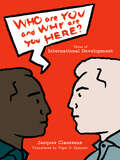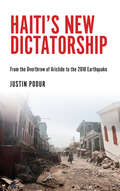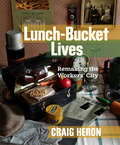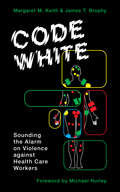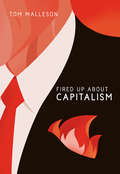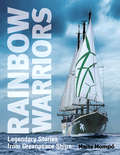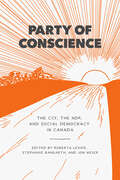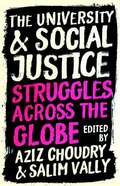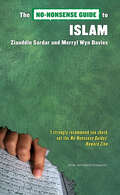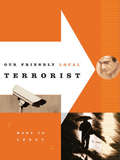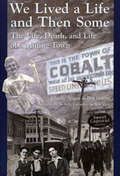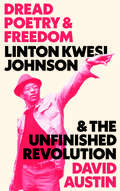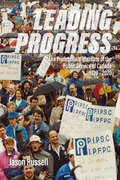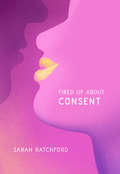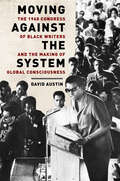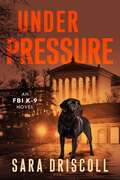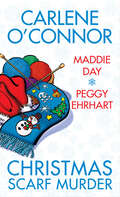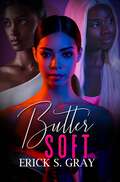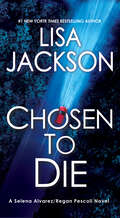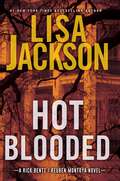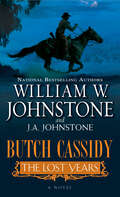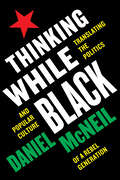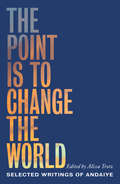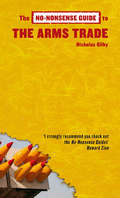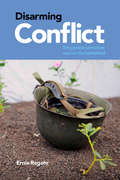- Table View
- List View
Who Are You and Why Are You Here?: Tales of International Development
by Jacques ClaessensEvery international development project looks good on paper until someone asks, “Who are you and why are you here?” In this case, it’s a man from northern Burkina Faso. His question reveals everything wrong with international development work today. Jacques Claessens questions the real effects of development programs and agencies, NGOs, and multinational corporations on the economy and welfare of the global south—from a Kafkaesque well-drilling project in Udathen to the Chernobyl-like environmental devastation wrought by the Canadian-owned Essakane mine. Through tales of uneasy encounters between nomadic Tuaregs and Western engineers, well-meaning NGO staff and their incredibly self-serving bosses, UN bureaucrats, a greedy Canadian mining company, and Burkinabe villagers–all pursuing ostensibly noble goals, all barely listening to each other–we begin to understand the realities of international development.
Haiti’s New Dictatorship: The Coup, the Earthquake and the UN Occupation
by Justin PodurIn 1804 Haiti became the world’s first independent Black republic following a slave revolution. Two hundred years later, ravaged by colonialism and corrupt elites, it was placed under a UN military occupation. Haiti’s New Dictatorship is the history of the past seven years, from the 2004 coup against Aristide to the devastating 2010 earthquake,revealing a shocking story of abuse and neglect by international forces. Justin Podur reveals the reality of a supposedly benign international occupation, arguing that the denial of sovereignty is the fundamental cause of Haiti’s problems. A powerful challenge and wake-up call to the international NGO and development community, Haiti’s New Dictatorship is essential reading for anyone concerned with justice in the global south and progressive development policies.
Lunch-Bucket Lives: Remaking the Workers’ City
by Craig HeronLunch-Bucket Lives takes the reader on a bumpy ride through the history of Hamilton’s working people from the 1890s to the 1930s. It ambles along city streets, peers through kitchen doors and factory windows, marches up the steps of churches and fraternal halls, slips into saloons and dance halls, pauses to hear political speeches, and, above all, listens for the stories of men, women, youths, and children from families where people relied mainly on wages to survive. Heron takes wage-earning as a central element in working-class life, but also looks beyond the workplace into the households and neighbourhoods—settlement patterns and housing, marriage, child care, domestic labour, public health, schooling, charity and social work, popular culture, gender identities, ethnicity and ethnic conflict, and politics in various forms—presenting a comprehensive view of working-class life in the first half of the twentieth century. This book has been published with the help of a grant from the Federation for the Humanities and Social Sciences, through the Awards to Scholarly Publications Program, using funds provided by the Social Sciences and Humanities Research Council of Canada.
Code White: Sounding the Alarm on Violence against Health Care Workers
by Margaret M. Keith James T. BrophyWhen health care workers call a Code White, it’s an emergency response for a violent incident: a call for help. But it’s one that goes unanswered in hospitals, clinics, and long-term care homes across the country. Code White exposes a shocking epidemic of violence that’s hidden in plain sight, one in which workers are bruised, battered, assaulted, and demeaned, but carry on in silence, with little recourse or support. Researchers Margaret M. Keith and James T. Brophy lay bare the stories of over one hundred nurses and personal support workers, aides and porters, clerical workers and cleaners. The nightmarish experiences they relate are not one-off incidents, but symptoms of deep systemic flaws that have transformed health care into one of the most dangerous occupational sectors in Canada. The same questions echo in the wake of each and every brutal encounter: Is violence and trauma really just “part of the job”? Why is this going underreported and unchecked? What needs to be done, and how?
Fired Up about Capitalism (Fired Up #1)
by Tom MallesonThere is no alternative to free-market capitalism. At least that’s what we’ve been told since the 1980s, when Margaret Thatcher first declared the debate over. Politicians daily declare it, journalists parrot it, talk show hosts acquiesce to it, rich people gloat about it, and regular people simply assume it. Fired Up about Capitalism forcefully argues that this is nothing but a myth. Tom Malleson exposes the reality of contemporary capitalism–from the widening inequality between the 1% and the rest of society, to ecological devastation–and demonstrates that in fact there are many alternatives. By demonstrating a wide range of examples of alternatives from around the world, from the short-term and practical to the long-term and ambitious, Malleson shows that replacing contemporary capitalism is not pie-in-the-sky utopia, but a real possibility as long as enough of us fight back against injustice and insist that a better world is possible.
Rainbow Warriors: Legendary Stories from Greenpeace Ships
by Maite MompóFollowing the lives of the three Greenpeace ships with the name Rainbow Warrior, long-serving Greenpeace activist, Maite Mompó tells the inside stories of life on board and recounts some of the ships’ most exciting adventures and actions. Rainbow Warriors provides a narrative of real life on board, a history of these famous vessels, and a history of Greenpeace that goes beyond the organization’s work on the oceans. Starting with the early life of Greenpeace and the bombing of the Rainbow Warrior I by the French secret service through to the imprisonment of the Arctic 30 by the Russians, the stories are brought to life with colour photos from the Greenpeace archives, maps, and nautical charts. Mompó’s tales from the high seas are full of action and daring but also of humanity and great compassion.
Party of Conscience: The CCF, the NDP, and Social Democracy in Canada
by Roberta Lexier Stephanie Bangarth Jon WeierSurveying the field of political history in Canada, one might assume that the politics of the nation have been shaped solely by the Liberal and Conservative parties. Relatively little attention has been paid to the contributions of the CCF and NDP in Canadian politics. This collection remedies this imbalance with a critical examination of the place of social democracy in Canadian history and politics. Bringing together the work of politicians, think tank members, party activists, union members, scholars, students, and social movement actors in important discussions about social democracy delving into an array of topics including municipal, provincial, and national issues, labour relations, feminism, contemporary social movements, war and society, security issues, and the media, Party of Conscience reminds Canadians of the important contributions the CCF and NDP have made to a progressive, compassionate idea of Canada.
The University and Social Justice: Struggles across the Globe
by Aziz Choudry and Salim VallyHigher education has long been contested terrain. From student movements to staff unions, the fight for accessible, critical, and quality public education has turned university campuses globally into sites of struggle. Whether calling for the decommodification or the decolonization of education, many of these struggles have attempted to draw on (and, in turn, resonate with) longer histories of popular resistance, broader social movements, and radical visions of a fairer world. In this critical collection, Aziz Choudry, Salim Vally, and a host of international contributors bring grounded, analytical accounts of diverse struggles relating to higher education into conversation with each other. Featuring contributions written by students and staff members on the frontline of struggles from 12 different countries, including Canada, Chile, France, India, Mexico, Nigeria, Occupied Palestine, the Philippines, South Africa, Turkey, the UK, and the US, the book asks what can be learned from these movements’ strategies, demands, and visions.
No-Nonsense Guide to Islam (No-Nonsense Guides #19)
by Merryl Wyn Davies Zia SardarEven before September 11, 2001, Muslims were often framed by Western media and many non-Muslims as enemies of “freedom” and “progress.” Like other religions, Islam is not without its ongoing tensions and struggles. However, like other religions, there is a depth and richness to the Islamic faith that is too often overlooked because of stereotypes. This No-Nonsense Guide looks at the complexities of Islam and how its adherents are reconciling their faith with the social realities of the twenty-first century. In so doing, Merryl Wyn Davies and Zia Sardar examine the Qur’an and Islamic law (sharia), how world history has been shaped by Islam, Islam’s rocky relationship with the Western world, and the many challenges within and without Islam.
Our Friendly Local Terrorist
by Mary Jo LeddyOur Friendly Local Terrorist tells the story of the fourteen-year struggle of Suleyman Goven, a Kurd accused by the Canadian Security Intelligence Service of being a terrorist. Mary Jo Leddy was “accidentally” present at Suleyman’’s first interview with CSIS. During that eight-hour ordeal he was propositioned: you work for us as a spy and you’ll get your papers; otherwise—there are no guarantees. Mary Jo continued to be a witness to this bizarre and painful process over the following years at judicial and semi-judicial hearings, which finally ruled that Suleyman ought to be given his papers. This moving personal story explores the efficacy of the immigration and security clearance systems in the Canadian government. It also provides an entry into the (often-complex) political dynamics and pressures within Kurdish communities in Canada and elsewhere in the diaspora, and reveals Turkey’s role and influence in international relations when the tender of huge business contracts is at stake.
We Lived a Life and Then Some: The Life, Death, and Life of a Mining Town
by Charlie Angus Brit GriffinBased on in-depth oral interviews with local residents, and rich archival sources, We Lived A Life and Then Some relates the common person’s struggle to overcome harsh working conditions and government neglect. The unique culture of the hardrock mining town of Cobalt is exposed through the eyes of retired miners, young welfare mothers, and grade-school children. Angus and Griffin reveal why, in spite of great adversity, Cobalt remains a distinctive and cohesive working-class community.
Dread Poetry and Freedom: Linton Kwesi Johnson and the Unfinished Revolution
by David AustinSince the 1970s, poet Linton Kwesi Johnson has been putting pen to paper to refute W.H. Auden’s claim that “poetry makes nothing happen.” For Johnson, only the second living poet to have been published in the Penguin Modern Classics series, writing has always been “a political act” and poetry “a cultural weapon.” In Dread Poetry and Freedom David Austin explores the themes of poetry, political consciousness, and social transformation through the prism of Johnson’s work. Drawing from the Bible, reggae and Rastafari, and surrealism, socialism, and feminism, and in dialogue with Aimé Césaire and Frantz Fanon, C.L.R. James and Walter Rodney, W.E.B. Du Bois and the poetry of d’bi young anitafrika, Johnson’s work becomes a crucial point of reflection on the meaning of freedom in this masterful and rich study.
Leading Progress: The Professional Institute of the Public Service Canada 1920–2020
by Jason RussellOn February 6, 1920, a small group of public service employees met for the first time to form a professional association. A century later, the Professional Institute of the Public Service Canada (PIPSC) is a bargaining agent representing close to 60,000 public sector workers, whose collective efforts for the public good have touched the lives of every Canadian. Published on the centennial of PIPSC’s founding, Leading Progress is the definitive account of its evolution from then to now—and a rare glimpse into an under-studied corner of North American labour history. Researcher Dr. Jason Russell draws on a rich collection of sources, including archival material and oral history interviews with dozens of current and past PIPSC members. The story that unfolds is a complex one, filled with success and struggle, told with clarity and even-handedness. After decades of demographic and generational shifts, economic booms and busts, and political sea change, PIPSC looks toward its next hundred years with its mission as strong as ever: to advocate for social and economic justice that benefits all Canadians.
Fired Up about Consent
by Sarah RatchfordAccording to the World Health Organization, one in three women will be sexually or physically assaulted in her lifetime. These rates are very similar for non-binary people and other feminized people, too. This is rape culture, and young adults are living through it here and now. Fired Up about Consent is a practical, survivor-informed primer for young people who want to learn how to build joyful, mutually satisfying sex lives and relationships. In these pages, author Sarah Ratchford defines rape and sexual assault, busts the myths behind toothless messaging and outdated advice, and provides sex-positive scripts on how to ask for and offer a clear, enthusiastic, and freely given “Yes!” Along the way, Ratchford touches on topics such as #MeToo, gender identity, masturbation, virginity, porn, sex work, reporting assault, and more, all through a radically inclusive and intersectional lens. The message is loud and clear: not only is consent sexy, it’s mandatory—and everyone deserves frank and empowering literacy around it. Only with empathy, compassion, and resistance can we move forward into a new culture of consent.
Moving Against the System: The 1968 Congress of Black Writers and the Making of Global Consciousness
by David AustinIn 1968, as protests shook France and war raged in Vietnam, the giants of Black radical politics descended on Montreal to discuss the unique challenges and struggles facing their brothers and sisters. For the first time since 1968, David Austin brings alive the speeches and debates of the most important international gathering of Black radicals of the era. Against a backdrop of widespread racism in the West, and colonialism and imperialism in the “Third World,” this group of activists, writers, and political figures gathered to discuss the history and struggles of people of African descent and the meaning of Black Power. With never-before-seen texts from Stokely Carmichael, Walter Rodney, and C.L.R. James, Moving Against the System will prove invaluable to anyone interested in Black radical thought, as well as capturing a crucial moment of the political activity around 1968.
Under Pressure: A Spellbinding Crime Thriller (An FBI K-9 Novel #6)
by Sara DriscollFor fans of Michael Connelly and Lisa Gardner comes a riveting new thriller featuring FBI handler Meg Jennings and her K-9 partner, Hawk, as they are drawn into a blood diamond smuggling investigation with an enemy whose power and ruthlessness know no bounds in a case worthy of Jack Reacher or Jason Bourne . . .&“Under Pressure has both bark and bite.&” —Mystery Scene Mag Diamonds are no one&’s best friend when the jewels in question are smuggled conflict gems. Meg Jennings and her Labrador, Hawk, have undertaken many search-and-rescue missions, but this case has an unusual twist. A Philadelphia syndicate is importing diamonds from war-torn African nations and selling them with fake certificates to Stateside dealers. Agent Finn Pierce of the Organized Crime Program is embedded with the syndicate, but being caught with a wire or tracking device would mean instant execution. If Meg, her partner Brian Foster, and their dogs can track Pierce to a deal location, they can break the smuggling chain while maintaining Pierce&’s cover. With the syndicate monitoring every move, it&’s a risky operation with more players than Meg and Brian first assumed—on both sides of the law. And when one of their own gets caught in the line of fire, the team embarks on a desperate rescue mission, knowing that mere seconds are all that separate life and death . . . &“Exceptional . . . Readers will hope this series has a long run.&” —Publishers Weekly, STARRED REVIEW on Storm Rising
Christmas Scarf Murder
by Carlene O'Connor Maddie Day Peggy EhrhartStocking stuffers like handknit scarves make the coziest of Christmas gifts—unless they&’re used as accessories for murder!CHRISTMAS SCARF MURDER by CARLENE O&’CONNOR When grinchy thefts steal the good cheer at a local nursing home, Siobhan O&’Sullivan manages to identify one missing item before Kilbane, Ireland&’s Christmas tractor parade—a hideous shamrock scarf wrapped around a very dead body. Now, with her holiday farmhouse bash approaching, Siobhan must dash to stop a deadly Secret Santa from gifting another unwanted surprise.SCARFED DOWN by MADDIE DAY It&’s beginning to taste a lot like Christmas at Pans &‘N Pancakes, as twelve days of menu specials dazzle hungry locals. But the festivities go cold the instant a diner dies while knitting a brilliant green scarf. With Aunt Adele tied into a murder investigation, it&’s all on Robbie Jordan to find out who&’s really been naughty or nice in South Lick, Indiana. DEATH BY CHRISTMAS SCARF by PEGGY EHRHART Suspects pile up faster than New Jersey snow when frosty-tempered Carys Walnutt is found strangled by a handmade scarf auctioned at Arborville&’s tree-lighting ceremony. Between a winning bidder hiding behind the alias &“S. Claws&” and a victim who deserved coal in her stocking, can Pamela Paterson and the crafty Knit and Nibble ladies freeze a killer&’s merry murder plot?
Butter Soft
by Erick S. GrayVeteran urban author Erick S. Gray weaves a tale of college students exploring love in relationships that are exciting but might end up being more dangerous than they realize. Nea and Amber are two college freshmen attending Clinton Hill University in South Carolina. The roommates come from different worlds: Nea is from Brooklyn, New York, and Amber is from a small town called Tyron, North Carolina. They build a friendship in the first semester of school but take different directions regarding love. Nea is coming off the death of her boyfriend, who was murdered before her eyes two weeks before her first day of classes. She meets Van, a wealthy white boy and talented painter who becomes enamored by her, and she becomes his muse. Nea believes it&’s love. However, everything isn&’t what it appears. Amber is engaged to Henry, her hometown boyfriend from high school. However, when she meets Homando, an African American student at her school, she begins to doubt her relationship. Homando is intelligent, charismatic, outgoing, and different from what she&’s used to—but he also sells drugs to support his way through school. The two create a bond, both sexual and mental, and she falls in love with Homando and becomes engrossed in his world. But some forces are against their interracial relationship and will stop at nothing to ruin Homando&’s future and end their sexual tryst by any means necessary. And then there&’s Tiffany, a rebellious student. Tiffany comes from a strict, religious family, and now that she is in college, her liberated, promiscuous side has come out to play. She begins a series of affairs, including one with her middle-aged professor. Tiffany juggles these three men in her life like she&’s in a carnival act, forgoing her family and spiritual relationships because she&’s having too much fun. But the same thing that makes you laugh will eventually make you cry.
Chosen To Die (An Alvarez & Pescoli Novel #2)
by Lisa JacksonSet against the fan-favorite backdrop of Grizzly Falls, Montana, Chosen to Die pits two of #1 New York Times bestselling author Lisa Jackson&’s most fascinating characters—detectives and friends Selena Alvarez and Regan Pescoli—against a ruthless serial killer who has chosen Pescoli as his next victim. The cold of winter isn&’t just a nuisance in the Bitterroot Mountains of Montana. It&’s merciless and brutal—a weapon that a twisted serial killer uses to torture vulnerable women. Detectives Regan Pescoli and Selena Alvarez have spent months tracking down the Star-Crossed Killer, as he&’s dubbed by the press. They know how devious and patient he can be. What they couldn&’t have guessed is that Pescoli would be abducted by the very monster she&’s been hunting . . . Pescoli knows too much about her captor and his methods to doubt her fate. She&’s a trophy he&’s content to taunt for now, but eventually, he&’ll tire of her too. Until then, his killing spree continues, stretching the police department—and Alvarez—to the breaking point. Desperate to bring her missing partner safely home, Alvarez teams up with Pescoli&’s on-again, off-again lover, Nate Santana. But as the body count rises, a macabre pattern emerges. And Pescoli, though using every ounce of skill she possesses, knows that even if she escapes her captor&’s lair, the battle for survival is just beginning . . .
Hot Blooded (A Bentz/Montoya Novel #1)
by Lisa JacksonA cunning serial killer torments a New Orleans radio host in this thriller series debut by the #1 New York Times bestselling author of Afraid to Die. A prostitute lies strangled in a seedy French Quarter hotel room. Miles away, in a rambling plantation house on Lake Ponchartrain, late-night radio host Dr. Samantha Leeds receives a threatening crank call. But who would think to link the two?As more dead bodies turn up, Samantha's ominous caller persists, along with someone claiming to be a woman from her past—who's been dead for years. With Detective Rick Bentz convinced that the serial killer prowling the streets is somebody close to Samantha, she doesn't dare trust anyone. Especially not Ty Wheeler, her seductive new neighbor who seems to know more about her than a stranger should. Somebody has discovered Samantha's darkest secret. Somebody is convinced that lives must be sacrificed to pay for her sins. So far, the victims have been strangers. But as a cold-blooded killer grows bolder, Samantha wonders if she will be the next to die.
Butch Cassidy The Lost Years (Butch Cassidy the Lost Years #1)
by William W. Johnstone J.A. Johnstone"An entertaining story with lots of plot twists." --BooklistThe Greatest Western Writer Of The 21st Century In a small Texas town in 1950, a Pinkerton detective interrupts an old-timer's game of dominos to learn the truth about Butch Cassidy--who is still very much alive and well. In fact, he's the old-timer playing dominos. Seems that after surviving the infamous shootout in Bolivia that claimed the life of his partner the Sundance Kid, Butch returns to Texas searching for a place to call home. When he comes across a dying rancher who'd been shot by some rustlers, Butch promises to avenge him--and take over the ranch after his death. Assuming the name Jim Strickland, Butch begins a new chapter in his life. But trouble has a way of finding Butch. A corrupt railroad baron pulls him into the most dangerous train robbery he's ever attempted. But if Butch Cassidy is going to ride again, it'll have to be with a newer, and wilder, Wild Bunch. . . "Johnstone is a masterful storyteller, creating a tale that is fanciful and funny, exciting and surprisingly convincing. . .great fun." --Publishers Weekly
Thinking While Black: Translating the Politics and Popular Culture of a Rebel Generation
by Daniel McNeilThis uniquely interdisciplinary study of Black cultural critics Armond White and Paul Gilroy spans continents and decades of rebellion and revolution. Drawing on an eclectic mix of archival research, politics, film theory, and pop culture, Daniel McNeil examines two of the most celebrated and controversial Black thinkers working today. Thinking While Black takes us on a transatlantic journey through the radical movements that rocked against racism in 1970s Detroit and Birmingham, the rhythms of everyday life in 1980s London and New York, and the hype and hostility generated by Oscar-winning films like 12 Years a Slave. The lives and careers of White and Gilroy—along with creative contemporaries of the post–civil rights era such as Bob Marley, Toni Morrison, Stuart Hall, and Pauline Kael—should matter to anyone who craves deeper and fresher thinking about cultural industries, racism, nationalism, belonging, and identity.
The Point Is to Change the World: Selected Writings of Andaiye (Black Critique Ser.)
by AndaiyeRadical activist, thinker, and comrade of Walter Rodney, Andaiye was one of the Caribbean’s most important political voices. For the first time, her writings are published in one collection. Through essays, letters, and journal entries, Andaiye’s thinking on the intersections of gender, race, class, and power are powerfully articulated, Caribbean histories emerge, and stories from a life lived at the barricades are revealed. We learn about the early years of the Working Peopl’s Alliance, the meaning asnd impact of the murder of Walter Rodney and the fall of the Grenada Revolution. Throughout, we bear witness to Andaiye’s acute understanding of politics rooted in communities and the daily lives of so-called ordinary people. Featuring forewords by Clem Seecharan and Robin DG Kelley, these texts will become vital tools in our own struggles to “overcome the power relations that are embedded in every unequal facet of our lives.”
No-Nonsense Guide to the Arms Trade, 2nd edition (No-Nonsense Guides #23)
by Nicholas GilbyOne of the few up-to-date works on the whole of the arms trade, this No-Nonsense Guide explores not just the movement of weaponry across borders, but also the problematic activities that sustain the trade, such as espionage, government corruption, and shady taxpayer subsidies. This Guide reveals that despite Western governments’ preaching of the evils of the arms trade, they are the biggest exporters of weapons and they often sell them to repressive regimes throughout the world. This revised second edition uses the latest statistics and information available to provide a critical introduction to this most destructive business.
Disarming Conflict: Why Peace Cannot Be Won on the Battlefield
by Ernie RegehrWars fought over the past quarter century have been a spectacular failure. The overwhelming majority end in military stalemate and are settled at the negotiating table, with the grievances that led to the war still unresolved. In Disarming Conflict famed peace activist Ernie Regehr shows that force cannot simply override or transcend the social, political, and economic realities of conflict. War prevention, Regehr argues, is more successful when security policies address the conditions that most directly affect people’s lives and that are most instrumental in generating deep grievances and the despairing conclusion that there are no alternatives to the violence. Disarming Conflict sets out approaches, initiatives, and policies that steer away from the futility of fighting and promote non-military efforts towards “winning the peace.”
